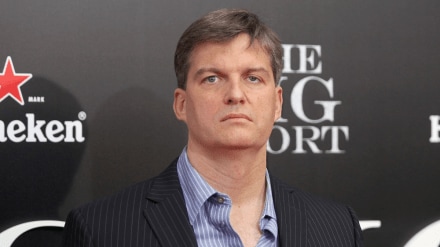Before Hollywood made him a reluctant celebrity, Michael Burry was an anonymous figure hunched over spreadsheets, parsing the data that most investors ignored. That changed when Michael Lewis wrote The Big Short, which essentially turned Burry into a Wall Street legend. A doctor by training, Burry left neurology to pursue numbers. When he foresaw the impending collapse of the US housing market and went on to make a fortune on his contrarian call, Hollywood found him too irresistible to ignore.
Burry’s fame rested on one eerily accurate call. He diagnosed the American mortgage system as terminally ill. In 2005, while most investors were celebrating a housing boom, Burry saw its bones rotting. His research into subprime lending revealed loans structured to fail, borrowers offered “teaser rates” that would soon reset, and lenders passing the risk up the chain through exotic bonds no one fully understood.
He persuaded investment banks like Goldman Sachs to sell him credit default swaps, effectively insurance against the collapse of those bonds. When the system buckled in 2007, his investors made a cool $725 million; Burry himself earned $100 million. He shut down his fund the next year, exhausted by lawsuits, audits and unwanted fame.
The Contrarian
Born in San Jose in 1971, Burry lost his left eye to childhood cancer, a formative experience that left him both self-contained and, by many accounts, obsessive. After studying economics at UCLA and medicine at Vanderbilt, he began posting stock analyses online while still in medical training. His posts caught the attention of professional investors, including Gotham Capital’s Joel Greenblatt, who seeded Burry’s first fund, Scion Capital, with $1 million in 2000.
Within four years, Scion’s assets had grown to $600 million. In 2008, following the investor revolt, he retreated from markets and public life, resurfacing in 2013 with a new vehicle, Scion Asset Management. His focus was not on stocks but on resources such as water, farmland, and gold. He believed the next great scarcity would be liquid, not financial. “Food is the way to invest in water,” he told one interviewer “grow it where water is abundant, sell it where it’s not.”
He bought farmland in water-rich regions to grow crops like almonds, betting that global water scarcity would one day make such assets invaluable.
Uneven Record
Burry’s post-2008 record, however, has been uneven. In 2019, he warned that passive investing has become a ‘bubble’ similar to the 2008 crisis. The markets, however, chose to ignore and, as a result, surged. In 2021, he shorted Tesla by calling it ‘overvalued and dependent on regulatory credits’. The stock doubled before he even closed his position. He bought GameStop early, urging buybacks and then sold out just before it became a meme-stock phenomenon, essentially missing out on billions. Later, he called Bitcoin a ‘speculative bubble’, which happened to be right before it hit record highs. In 2023, he put up a simple post on X (then Twitter) ‘sell’. His prediction was wrong yet again and he went on to admit that too as the markets soared in 2024.
The Big Short 2.0?
This year, Burry arguably placed his largest wager since the housing crisis, this time, against artificial intelligence stocks (AI), the new big shiny thing in the market. Scion has just disclosed $1.1 billion short exposure (via put options) against Palantir Technologies and Nvidia, together representing nearly 80% of his portfolio. A put option basically makes money when the stock price of the underlying asset collapses. Now, this bet has been placed in accordance with the latest quarterly filings and we are unsure if he has changed his position.
Characteristically, this is a big bet by Burry. And one that has once again made him take a contrarian stand.
As per news reports, Palantir, trading at 700x earnings, had risen 170% this year. Nvidia, the world’s most valuable company at about $5 trillion market cap, had climbed 54%.
Breaking a long social media silence, Burry posted: “Sometimes we see bubbles. Sometimes, there is something to do about it. Sometimes, the only winning move is not to play.” He signed off as Cassandra Unchained, invoking the myth of the Greek prophetess cursed to tell the truth but never be believed.
Markets trembled briefly. Nvidia’s stock dipped 4%; Palantir fell 8%, according to CNBC. Palantir’s CEO, Alex Karp, fired back on CNBC quoting short sellers as “bat**** crazy.” Burry said nothing more (so far).
The Burry Paradox
At 54, Burry remains one of modern finance’s great contradictions: an investor who distrusts markets but cannot stop diagnosing them. His Scion fund now manages about $1.4 billion. Elon Musk once dismissed him as “Burry is a broken clock.”
Whether his bet against AI becomes his second act or another mistimed trade remains to be seen. The AI boom of 2025 bears an eerie resemblance to past bubble he’s warned about.
Only time will tell if Cassandra’s prophecy comes true once more.
But one thing is for sure. Burry has once again lived up to his reputation of being a contrarian. And that too, one who bets big. Really big.
